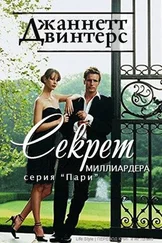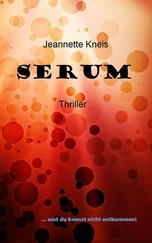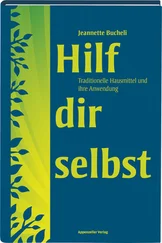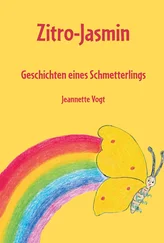At each town-usually a small collection of wood shacks and adobe huts, a single store, and a little church-I bought the next day’s food and chatted with the storekeeper about the road ahead. Was it rocky? Any riffraff I should avoid? Where was the best place to water and camp?
Most of the storekeepers were happy to play the expert, giving me advice and directions, drawing maps on paper bags. They were also happy to have someone to talk to. At one lonely place, the store was deserted except for the owner. The shelves were lined with a few dusty tins of peaches and bottles of liniments. After paying for a bag of hardtack, I asked the storekeeper, “How many customers have you had today?”
“You’re the first this week,” he said. “But it’s only Wednesday.”
* * *
I rode from Hondo to Lincoln to Capitan to Carrizozo, where the road wound down out of the hills into the flat, burnt stretch of desert known as the Malpais. There I headed north, the big Chupadera Mesa rising up out of the desert floor to my left. I reached the Rio Grande at a small town called Los Lunas. It wasn’t much of a river there, and a Zuni girl ferried me across in a raft, pulling us along with a rope that ran from one bank to the other.
West of the river was a bunch of Indian reservations, and one day I met up with a half-Navajo woman on a donkey. I figured she wasn’t much older than me. She wore a cowboy hat, and her thick black hair spilled out from under it like mattress stuffing. She was heading in my direction and we fell in together. She introduced herself as Priscilla Loosefoot. Her mother, she said, had traded her to a settler family for two mules, but they had beaten her and treated her like an animal, so she’d run away and now scratched out a living collecting and selling herbs.
That night we pitched camp in a grove of juniper trees off the road. I took my cornmeal from my saddlebag, and Priscilla got out some fat-back wrapped in leaves. She mixed the cornmeal and fatback with water and some salt she kept in a leather pouch, shaped a short stack of Indian cakes on a flat rock, and fried them on another flat rock she’d placed in the fire.
A lot of Navajos were quiet, but Priscilla was a real talker, and as we sat there licking our fingers while the fire died down, she went on about what a good team we’d make and how maybe we should travel together and she’d teach me how to identify herbs.
After a while we drifted off to sleep, but something woke me in the middle of the night, and I found Pricilla quietly going through my saddlebags.
The pearl-handled revolver was in my boot. I pulled it out and held it up so Priscilla could see it in the moonlight.
“I got nothing worth stealing,” I said.
“I figured you didn’t,” Pricilla said. “But I had to make sure.”
“I thought you said we made a good team.”
“We still could if you don’t hold this here against me. Thing is, I don’t get a lot of opportunities, and when one comes along, I gots to take it.”
I knew what she meant, but still, I didn’t care to wake up and find her gone and Patches with her. I stood up and gathered my bedroll. “You stay here,” I said.
“Sure thing.”
There was just enough moon to make out the road. I saddled up Patches and moved on alone.
I crossed into Arizona at the Painted Cliffs, red sandstone bluffs that rose straight up out of the desert floor. After another ten days of steady riding, I reached Flagstaff. Its hotel advertised a bathtub, and since I was feeling pretty ripe at that point, it was mighty tempting, but I kept going and two days later arrived at Red Lake.
I’d been on the road, out in the sun and sleeping in the open, for twenty-eight days. I was tired and caked with dirt. I’d lost weight, my clothes were heavy with grime and hung loosely, and when I looked in a mirror, my face seemed harder. My skin had darkened, and I had the beginnings of squint lines around my eyes. But I had made it, made it through that darned door.
RED LAKE WAS Asmall ranch town on a high plateau about thirty miles south of the Grand Canyon. The range sloped away for miles, to both the east and the west, giving you the feeling that you were at one of the world’s high points. The land here was greener than the parts of Arizona I’d passed through, with thick grass that grew so high it tickled the bellies of the cattle that grazed there. For as long as anyone could remember, the range around Red Lake wasn’t used for much of anything other than grazing, but farmers had recently discovered it, and they came in with their plows and well diggers and high hopes to do the backbreaking work that was needed to bring up crops as green as the grass that grew there. Those farmers brought big families with them, and their kids needed teaching.
Shortly after I arrived, the county superintendent, Mr. MacIntosh, rode up from Flagstaff to explain the situation. Mr. MacIntosh was a slight man with a head so narrow he reminded me of a fish. He wore a fedora and a stiff white paper collar. Because of the war, he explained, men were joining the army and women were leaving the countryside to take the high-paying factory jobs the men had left behind. But even with the shortage of teachers in rural areas, the board wanted the certified teachers to have at least an eighth-grade education, which I didn’t have. So I was to teach in Red Lake until they could hire a more qualified person, and then I’d be sent somewhere else.
“Don’t worry,” Superintendent MacIntosh said. “We’ll always find a place for you.”
Red Lake had a one-room schoolhouse with an oil stove in a corner, a desk for the teacher, a row of benches for the kids, and a slate blackboard that made me especially happy, as a lot of schools lacked them. On the other hand, a lot of one-room schools had a teacherage attached, where the teacher lived, but the one in Red Lake didn’t, so I slept on the floor of the school in my bedroll.
Still, I loved my job. Superintendent MacIntosh hardly ever came around, and I got to teach exactly what I wanted to teach, in the way I wanted. I had fifteen students of all ages and abilities, and I didn’t have to round them up because their parents, eager for them to learn, brought them to the school on the first day and made sure they kept coming back.
Most of the kids were born back east, though some came from as far away as Norway. The girls wore faded floor-length gingham dresses, the boys had chopped-up haircuts, and they all went barefoot in warm weather. Some of those kids were poorer than poor. One day I stopped by the house of one of my Walapai students, and they were cooking up beef with little bugs crawling in it.
“Careful,” I said, “that meat is full of maggots.”
“Yes,” the mother said, “but the maggots are full of meat.”
We had no textbooks, so the kids brought whatever they had from home-family Bibles, almanacs, letters, seed catalogs-and we read from those. When winter came, one of the fathers gave me a fur coat he’d made from coyotes he’d trapped, and I wore it in the schoolroom during the day, since my desk was far from the oil stove, which the kids were all huddled around. Mothers made a point of bringing me stews and pies and inviting me to Sunday dinner, when they’d even set out a white tablecloth as a sign of respect. And at the end of every month I picked up my paycheck from the town clerk.
Halfway through the year, Superintendent MacIntosh found a certified teacher for Red Lake, and I was sent on to another little town called Cow Springs. For the next three years, that’s how Patches and I lived, moving from one town to another-Leupp, Happy Jack, Greasewood, Wide Ruin-after a stay of a few months, never putting down roots, and never getting too close to anyone. Still, all those little rascals I was teaching learned to obey me or got their knuckles rapped, and I was teaching them things they needed to know, which made me feel like I was making a difference in their lives. I never met a kid I couldn’t teach. Every kid was good at something, and the trick was to find out what it was, then use it to teach him everything else. It was good work, the kind of work that let you sleep soundly at night and, when you awoke, look forward to the day.
Читать дальше









